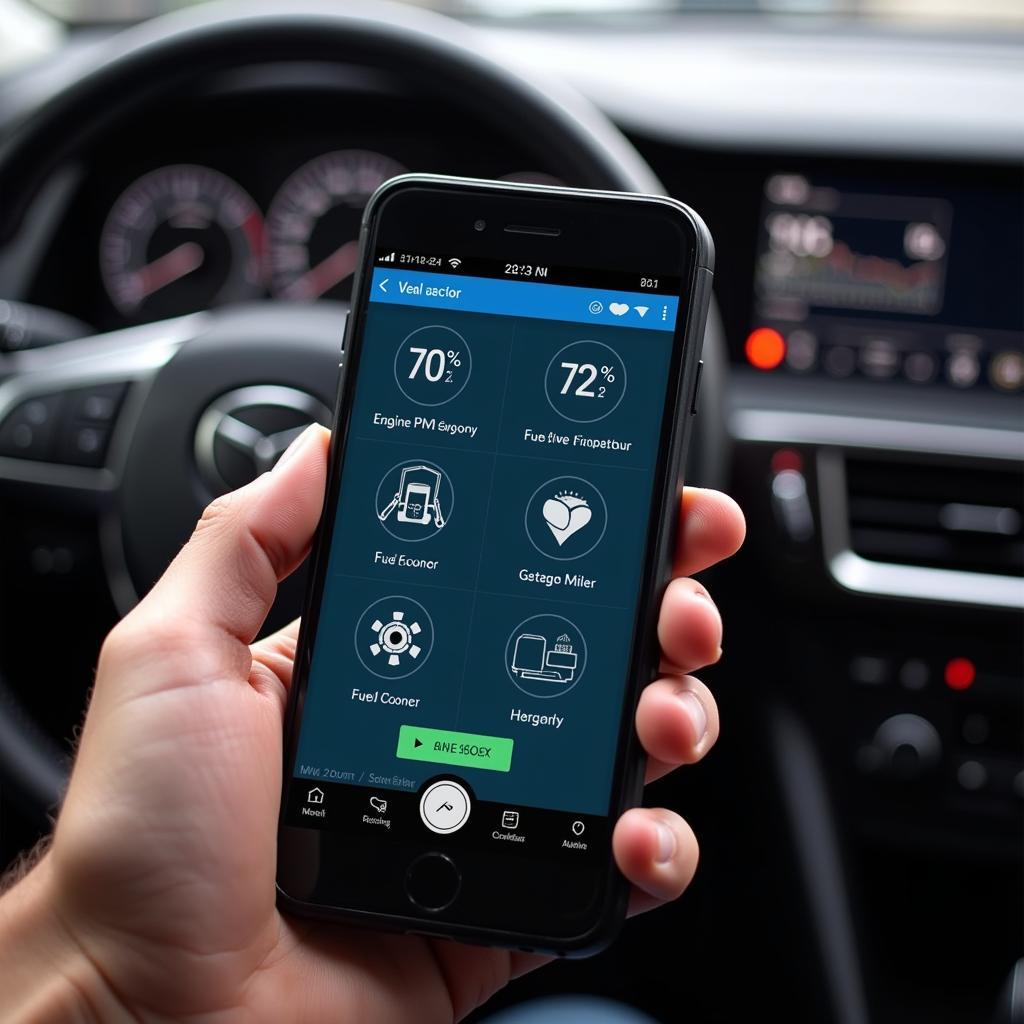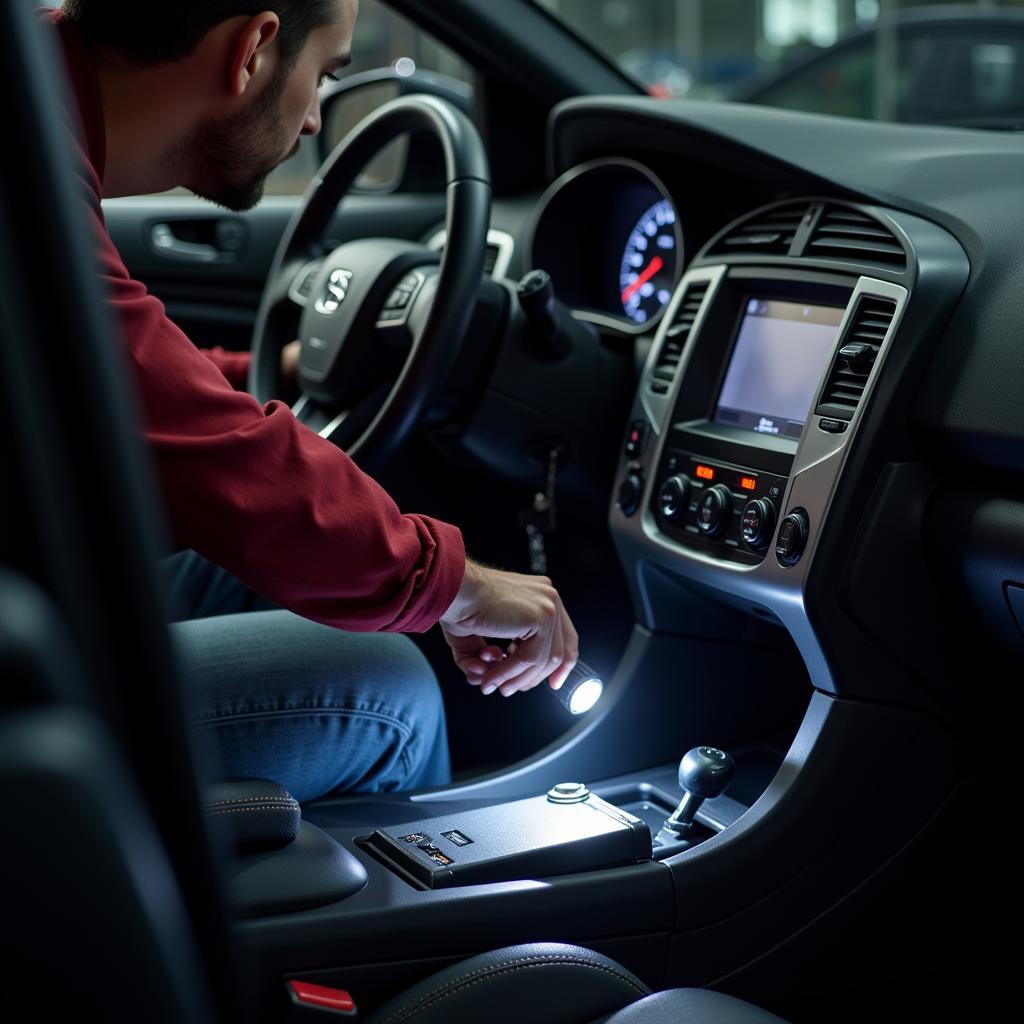Your cart is currently empty!

Can You Leave an OBD2 Adapter Plugged in All the Time?
Many car owners are curious if it’s safe to leave their OBD2 adapter plugged in all the time. It’s a valid question with implications for both your car’s health and your own peace of mind. In this article, we’ll dive deep into the world of OBD2 adapters, exploring their functionality, the potential risks of continuous use, and best practices to ensure you’re using yours safely and effectively.
Understanding OBD2 Adapters: Your Car’s Digital Translator
Before we address the question of whether to leave your OBD2 adapter plugged in all the time, it’s essential to understand what these devices do. An OBD2 adapter, often referred to as a scanner or dongle, acts as a bridge between your car’s computer and external devices like smartphones or laptops. It allows you to access a wealth of information about your vehicle’s health and performance.
Think of your car’s onboard computer as a complex brain that constantly monitors various systems. The OBD2 port is like the communication center, and the adapter is the translator. It converts complex data into a user-friendly format that you can understand and use.
The Appeal of a Constant Connection: Advantages of Keeping it Plugged In
There are several reasons why car owners might consider leaving their OBD2 adapters plugged in all the time:
- Real-time Monitoring: A continuously connected adapter provides a constant stream of data, allowing you to monitor your car’s performance in real-time. This can be particularly helpful for identifying potential issues early on.
- Enhanced Security: Some OBD2 adapters are integrated with GPS tracking and security features, offering an added layer of protection against theft.
- Driving Data and Analytics: Many adapters connect to smartphone apps, providing detailed driving data, fuel efficiency analysis, and trip logs.
 Smartphone displaying car data from OBD2 app
Smartphone displaying car data from OBD2 app
The Potential Risks: Should You Be Concerned?
While the convenience of a constantly connected OBD2 adapter is appealing, there are potential downsides to consider:
- Battery Drain: One of the most common concerns is battery drain. While modern adapters are designed for low power consumption, leaving them plugged in indefinitely, especially in older cars, can contribute to a drained battery, particularly if the vehicle is left unused for extended periods.
- Security Vulnerabilities: While some adapters enhance security, leaving a port constantly accessible could, theoretically, create a vulnerability to hacking, especially with older or less secure adapters.
- Dashboard Warning Lights: In some rare cases, a faulty or incompatible OBD2 adapter might trigger warning lights on your dashboard. While this doesn’t necessarily indicate a severe problem, it can be inconvenient.
Best Practices for Using Your OBD2 Adapter
Here are some tips for maximizing the benefits of your OBD2 adapter while minimizing potential risks:
- Choose a Reputable Brand: Opt for a well-known and trusted brand of OBD2 adapter to ensure quality and minimize compatibility issues.
- Unplug When Not in Use: For most users, unplugging the adapter when you’re not actively using it is the safest practice.
- Be Mindful of Battery Life: If you do choose to leave your adapter plugged in, be particularly mindful of your car battery’s health, especially if you don’t drive frequently.
- Prioritize Security: If you’re using an OBD2 adapter for security features, ensure it’s from a reputable provider and has robust security protocols.
- Consult Your Owner’s Manual: Your car’s owner’s manual often contains valuable information about compatible devices and recommendations regarding OBD2 port usage.
FAQs: Addressing Common Concerns
1. Will leaving an OBD2 adapter plugged in void my car’s warranty?
No, using a standard OBD2 adapter should not void your car’s warranty.
2. Can I damage my car by leaving an OBD2 adapter plugged in?
It’s unlikely that a properly functioning OBD2 adapter from a reputable brand would cause damage. However, a faulty or incompatible device could potentially lead to issues.
3. Do all cars have the same type of OBD2 port?
All gasoline cars manufactured after 1996 and diesel cars manufactured after 1997 in the United States are required to have a standard OBD2 port. However, the location of the port can vary slightly depending on the make and model of your vehicle.
 Mechanic locating the OBD2 port in a car
Mechanic locating the OBD2 port in a car
Conclusion: Making Informed Decisions About Your OBD2 Adapter
The decision of whether to leave your OBD2 adapter plugged in all the time depends on your individual needs and comfort level. While there are potential benefits, like real-time monitoring and enhanced security, being mindful of battery drain and choosing a reputable brand are essential. By following the best practices outlined in this article, you can make informed decisions about using your OBD2 adapter safely and effectively.
Need Expert Advice?
Our team of car diagnostic specialists is here to answer your questions and provide personalized guidance. Contact us via WhatsApp at +1(641)206-8880 or email us at [email protected]. We’re available 24/7 to assist you.

Leave a Reply